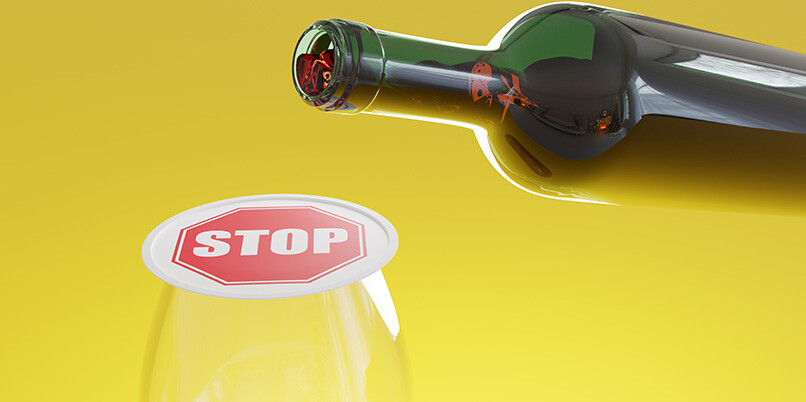Table of contents
- Why Do People Feel the Need to Hide Drinking?
- Why is it important to watch for changes in behavior and mood?
- What are the Signs of Secret Drinking?
- Why is it Important to notice the signs of secret drinking?
- The Impact of Secret Drinking on Mental Health
- What to Do If You or a Loved One Is Drinking in Secret
- Help Someone Who’s Secretly Drinking — Don’t Judge!
Why Do People Feel the Need to Hide Drinking?
Secret drinking usually arises from feelings of shame, guilt, or fear of judgment. When someone begins to hide their alcohol consumption, it may be because they sense that their behavior is unacceptable or that it conflicts with their personal values or social expectations. This secrecy can also be an attempt to avoid conflict with loved ones or to maintain a façade of control and normalcy.
Often, secret drinking becomes a way to mask underlying issues such as anxiety, depression, trauma, or unresolved emotional pain. Individuals may use alcohol as a coping mechanism to numb uncomfortable feelings or escape stress.
It’s also important to know how much someone drinks on average, so you can identify if their habits are concerning.
Why is it important to watch for changes in behavior and mood?
If someone you care about is secretly drinking, you may notice changes in their behavior and mood. The signs of a drinking problem vary depending on the person’s situation, but there are common warning signs of alcohol abuse that can be identified in anyone. Since alcohol abuse is often accompanied by other negative behaviors, such as abuse of prescription medications, illicit drugs, and/or poor diet and exercise habits, these can also signal a problem. And if someone is drinking but not engaging in other unhealthy behaviors, then this may suggest that their drinking is a problem.
What are the Signs of Secret Drinking?
Drinking in secret alone is not necessarily a diagnosis, but when combined with other behaviors and consequences, it may point toward alcohol use disorder (AUD) or problematic drinking. Some warning signs include:
- Frequently consuming alcohol in isolation or sneaking drinks without others knowing.
- Finding it difficult to limit the amount or frequency of drinking.
- Missing work, school, or social obligations due to drinking and neglecting important responsibilities.
- Experiencing conflicts, withdrawal, or secrecy in relationships because of drinking habits.
- Feeling guilt, shame, or defensiveness when confronted about alcohol use.
- Relying on drinking to manage stress, anxiety, depression, or emotional pain.
- Increasing the amount or frequency of secret drinking over time.
- Experiencing health issues like blackouts, memory problems, or withdrawal symptoms when not drinking.
Why is it Important to notice the signs of secret drinking?
Secret drinking is often a warning sign that someone is struggling with their alcohol use in ways that may not be immediately visible to others. It can lead to escalating addiction, health complications, and severe disruptions in personal and professional life if left unaddressed.
The secrecy itself can create a barrier to seeking help, as shame and denial often prevent individuals from being open about their struggles. Early notice of its underlying causes can lead to timely intervention and support, increasing the chances of successful recovery.
The Impact of Secret Drinking on Mental Health
Secret drinking can have profound and often hidden effects on an individual’s mental health. When alcohol use is concealed, it typically reflects underlying struggles that may worsen over time if left unaddressed.
Increased Anxiety and Stress:
Hiding alcohol consumption often leads to heightened anxiety and stress. The fear of being discovered or the guilt associated with secret drinking creates constant mental pressure, exacerbating emotional distress.
Isolation and Loneliness:
Secret drinking can cause individuals to withdraw from family, friends, and social activities. This isolation can deepen feelings of loneliness and exacerbate symptoms of depression and anxiety.
Shame and Low Self-Esteem:
Concealing drinking habits often stems from shame, which can hamper self-esteem. This negative self-perception makes it difficult for individuals to seek help or openly discuss their struggles.
Developing Mental Health Disorders:
Many who engage in secret drinking may also suffer from co-occurring mental health conditions such as depression, bipolar disorder, or PTSD. Alcohol can worsen these conditions, creating a cycle of mental health issues and increased substance use.
Cognitive Impairment:
Chronic secret drinking can impair cognitive functions such as memory, concentration, and decision-making, impacting daily functioning and emotional regulation.
Barriers to Recovery:
The secrecy surrounding alcohol use can prevent individuals from accessing support and treatment. Denial and hiding delay intervention, making recovery more difficult and long-term mental health challenges.
What to Do If You or a Loved One Is Drinking in Secret
If you notice secret drinking in yourself or someone close to you, it’s important to approach the situation with compassion and care:
- Open Communication: Encourage honest, non-judgmental conversations about alcohol use and its impact.
- Seek Professional Help: Addiction specialists, counselors, and medical professionals can provide assessments and recommend treatment options.
- Support Groups: Groups like Alcoholics Anonymous offer peer support and a safe environment to share experiences and find encouragement.
- Educational Resources: Learning more about alcohol use disorder and recovery can empower individuals to take steps toward healing.
- Create a Supportive Environment: Foster a sober-friendly space that promotes transparency, accountability, and encouragement.
Help Someone Who’s Secretly Drinking — Don’t Judge!
When you drink too much, it can quickly become a problem. Drinking in secret is often a sign that someone has an alcohol use disorder (AUD). An AUD is a chronic disease that is also sometimes called “high-risk drinking” or “at-risk drinking.” Approximately 14.5 million people in the United States suffer from alcohol use disorder. People who have an AUD typically drink more than most healthy adults and experience negative consequences as a result of their drinking. A person who drinks in secret may have an AUD and therefore risk the health of themselves, friends, family members, and even strangers. Drinking secretly is not something to be embarrassed about but rather something that should be taken as a sign to seek professional help for an alcohol use disorder.
If you notice any of these signs that someone is secretly drinking, try not to judge. Remember that judgment and criticism will only push someone away from getting help. Instead, try to be supportive and understanding. Be sure to let the person know that you care about their health and well-being, and that you want to help them find support they may not know they need.
Find out if they’ve been diagnosed with a mood disorder, such as depression or anxiety, and if they’re taking medication for the condition. Learning about their unique situation and circumstances may help you understand why they’ve been secretly drinking. For instance, some people with mood disorders, especially anxiety, may self-medicate with alcohol. If you think a loved one secretly drinks alcohol, you can help them by showing them compassion and support, and encouraging them to get help. Don’t judge or criticize their drinking — this will only push them away.
Encourage your loved one to enroll in a sober living program. You could save their life. In a sober living home, residents live in sober environments where they are unlikely to encounter triggers. If they feel a compulsion to drink, they will have a strong support system to fall back on. Moreover, residents work daily with each other and with staff members to develop new skills and a new sober way of life. Residents of sober living homes are far less likely to relapse even years afterwards. If you are ready to get help for yourself or your loved one, reach out to Bridges Sober Living Apartments today!
Table of contents
- Why Do People Feel the Need to Hide Drinking?
- Why is it important to watch for changes in behavior and mood?
- What are the Signs of Secret Drinking?
- Why is it Important to notice the signs of secret drinking?
- The Impact of Secret Drinking on Mental Health
- What to Do If You or a Loved One Is Drinking in Secret
- Help Someone Who’s Secretly Drinking — Don’t Judge!











